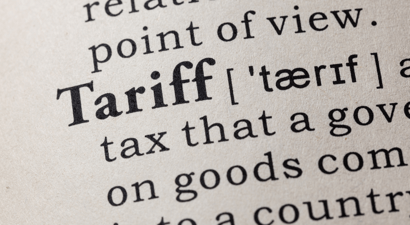Can a Contract Continue to Bind Parties, Despite There Being Change in the Legislative Regime that Governs it?
The question for decision in the recent appeal case of Transnet Soc Limited v Total South Africa (Pty) Ltd and Another (728/2015) [2016] ZASCA 116, was whether or not a contract between the former Government of South Africa, and the first respondent, Total South Africa (Pty) Ltd (“Total”), continues to bind the appellant, Transnet Soc Ltd (“Transnet”), a wholly-owned government company, despite the change in legislative regime that governs the transport and conveyance of fuel in South Africa. The contract between the parties was entered into in 1967 and varied in 1991, in which time, the legislation governing the contract changed.
Background
Due to a previous increased demand for petroleum products in South Africa, an inland refinery was established in Sasolburg. Transnet and Total came to an agreement whereby Total would conduct business with the inland refinery on condition that it would not be effected by the extra cost incurred by having to transport the fuel inland – Total could conduct business with refineries along the coast in the vicinity of their base, without incurring the increased cost of fuel transportation. Transnet undertook to abide by such a condition and it became known as the “neutrality principle”.
In 2005, Transnet decided that it would not continue to recognise the neutrality principle, as the National Energy Regulator Act 40 of 2004 (“NERSA Act”) and the Petroleum Pipelines Act 60 of 2003 (“PPA”) came into force. NERSA provides for a single regulatory system over electricity, piped gas and petroleum pipeline industries. As a result of this, NERSA, and not Transnet, would determine a new tariff under the new regime.
Arguments presented
Total was not opposed to the new regulatory regime, but wished that the neutrality principle continues to apply. The first tariff determination made by NERSA was for years 2010/2011 and did not accommodate the neutrality principle. Accordingly, Total instituted action to direct Transnet to implement the previous agreed-upon terms. Transnet’s defence was that the neutrality principle was abolished by the PPA and did not direct NERSA to give effect to it. Transnet further argued that the neutrality principle could not co-exist with Section 28 of the PPA, which gives power to NERSA only in setting a tariff.
Total’s argument was that, if not for the neutrality principle, it would never have participated with the inland refinery in business, as it was based along the coast and therefore not willing to pay the cost for the inland transportation of fuel. Total argued further that the neutrality principle did apply in the PPA, as discrimination against suppliers was prohibited in terms of Section 21 of the PPA, and thus Total would be discriminated against if the neutrality principle did not apply.
Court’s findings
The court favoured Total’s view, and stated that the tariff determined by NERSA in terms of the PPA, contained only maximum amounts that could be charged and, in valid circumstances, a discount could be afforded on these amounts and such a discount would be in line with the neutrality principle. Therefore, it was determined that Total qualified and was entitled to a discount for valid reasons (being situated along the coastline) and thus Transnet was bound to comply with the original contract (as amended in 1991).





